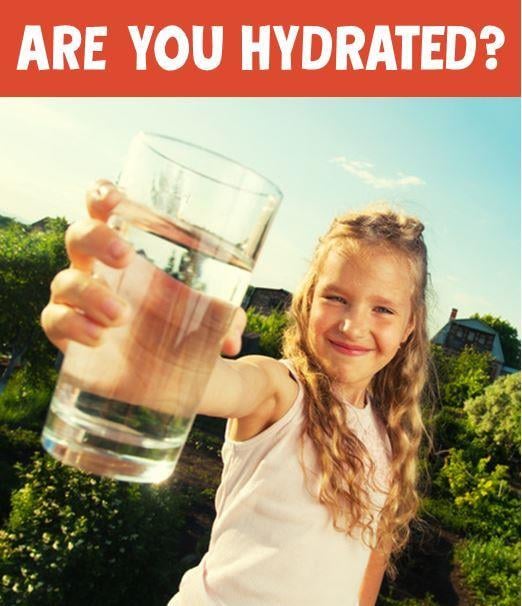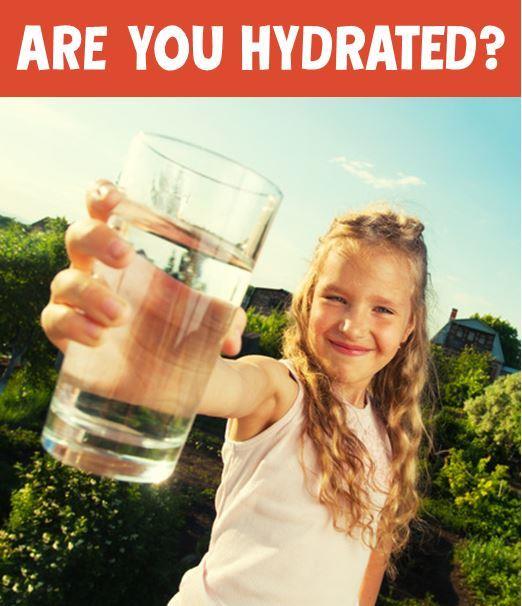 Here in Montana, we had a pretty mild start to our summer, but these past few months have been incredibly hot and dry which has left me guzzling water non-stop all day long. Dehydration can be a real threat in the summer heat, especially if you are active.
Here in Montana, we had a pretty mild start to our summer, but these past few months have been incredibly hot and dry which has left me guzzling water non-stop all day long. Dehydration can be a real threat in the summer heat, especially if you are active.
What does water do for us?
Water accounts for about 45-75% of a person’s body weight and is essential for our bodies to function at their fullest potential. In the body, water flushes out toxins, breaks down nutrients and carries them to our cells, maintains temperature balance, and brings moisture to membranes in our throat, ears, nose, and eyes. Water keeps our skin soft, helps us produce saliva, gastric juices, and even makes up about 83% of our blood. It is in essentially every cell of the human body.
Effects of hydration and dehydration on your body
When properly hydrated, you enjoy improved cognitive function, motor skills, and focus, and can perform at your peak physical abilities. Just as proper hydration boosts your performance, dehydration has the opposite effect. The first signs of dehydration include headaches, increased body temperature, flushed skin, fatigue, elevated pulse and breathing rate, decreased exercise capacity, muscle spasms, and shriveled skin . . . among other undesirable effects. If uncorrected, the dehydration can progress to dizziness, increased weakness, and labored breathing.
How much is enough?
The Institute of Medicine recommends that most men and women consume about thirteen and nine eight-oz. glasses of water a day, respectively. Although water is the best option, sodas, juices, milk, and caffeinated beverages such as coffee still count toward your daily fluid intake. Just be sure to monitor the caffeine, sugar, and calorie intake from your beverages. Some foods, such as fruits and vegetables, also provide water.
Dehydration concerns with alcoholic beverages
Planning to enjoy an alcoholic beverage? Don’t forget to continually hydrate as you enjoy a summery cocktail or two. Alcohol suppresses an antidiuretic hormone known as vasopressin. This results in a higher urine output, which can lead to dehydration and a headache later on if the fluid is not replenished.
TIP: To end the summer without any dehydration mishaps, try carrying around a bottle of water and constantly sipping throughout the day. A sure sign that you are well hydrated is pale or colorless urine.
How do you stay hydrated? Share your tips in the comments.
Don’t Miss Melissa’s Next Post!
Read more about taking care of yourself:
- Juicing vs. Whole Food: The Difference is Nutrition
- More Evidence Indicates Whole Grains Can Extend Your Life
- How to Snack Healthier When On The Go
- Don’t Miss Out On the Neurological Health Benefits of the Mind Diet!
References:
Institute of Medicine. Dietary Reference Intakes for Water, Potassium, Sodium, Chloride, and Sulfate. Washington, DC: The National Academies Press, 2005. doi:10.17226/10925. http://www.nap.edu/catalog/10925/dietary-reference-intakes-for-water-potassium-sodium-chloride-and-sulfate. Accessed August 25, 2016.
Image credit: © tatyanagl / 123RF Stock Photo; modified by text overlay.




